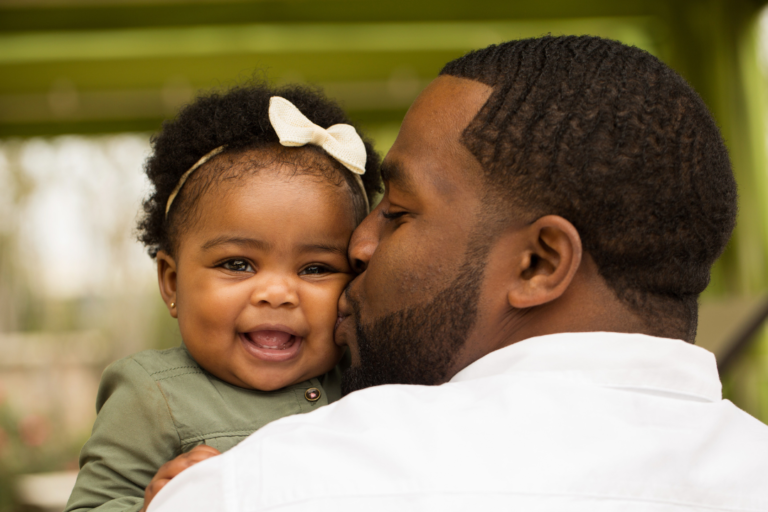Bad sleep habits for babies often creep in as a result of sheer desperation. You really want to get some sleep and will do just about anything to get your baby to comply. I remember this feeling as though it was yesterday. I was the epitome of sleep deprived with my first born. And in my 20 years as an Occupational Therapist, I’ve seen hundreds of parents who want to reverse bad sleep habits for babies that were a quick fix in a sleepless phase.
Baby sleep habits
Habits have a way of sneaking in. One day they’re not there and then suddenly you wake up one day and a habit has developed over time, without you even noticing! But before classifying any baby sleep habit as good or bad, it is important to know a few things:
- Habits do not develop in babies before three months old. If your baby is little and needs a certain method to get to sleep, it is because of the sensory benefit of that sleep association. Your baby doesn’t remember it from one sleep to the next.
- Bad sleep habits for babies typically become a problem between 7 and 11 months old.
- Anything you don’t want to do for a long time or any habit you don’t want to have to break must be avoided after five months of age.
- Most babies develop temporary bad habits after an illness for example. Usually it can take a few days to readjust to the old ways.
- A habit is only bad if you are not happy with it. Anything is acceptable if it is safe and works in your home over the long term.
What are the most common bad baby sleep habits?
1. Rocking to sleep
Your newborn will love the soothing movement of rocking because it is familiar to that of the sensation in the womb. As your baby grows out of the newborn stage, use rocking or movement to get your baby drowsy but try not to rock your baby all the way to sleep.
Instead, slowly stop rocking your baby just short of them falling asleep. Keep your hand on them as they settle in their cot. If they cry, pick them up and rock them gently but put them down when drowsy. The trick is to be consistent.
2. Breastfeeding or feeding to sleep
Breast milk is sweet, soothing and the sucking action helps your baby fall asleep. If your baby consistently falls asleep on the breast, burp them at your shoulder gently so they will rouse a little.
In an older baby, make sure they are fully awake (but they can be drowsy) when you put them down. Sit when you feed them. Avoid lying next to them so they feed lying down because they are more likely to fall asleep. After 6 months old, your baby does not need breast milk at night. Don’t offer a feed between bedtime and 4am.
3. Driving around the block
Like rocking, the movement is settling and the white noise of the car makes babies drowsy. Many newborns fall asleep as soon as they are in the car. This is fine because your baby sleeps so much it’s almost impossible to keep them awake or you would be trapped at home. Try to relax about this one, especially early on.
From 6 months old try to have your baby sleep in their room or sleep space for every sleep. This applies to both day sleeps and bedtime so they don’t have the chance to develop a habit of falling asleep in their baby seat or on you.
If you are trying to break the habit of driving your baby to sleep, wean your baby off it gently by using a pram to rock them to sleep for a few days. The next step is to rock them to drowsy for a few days and thereafter put them down to sleep in their cot drowsy, but awake.
4. Milk bottles through the night
Breast and formula milk is sweet and comforting and sucking on the teat also induces sleep. This is a bad habit for two reasons: firstly, it’s disruptive to your sleep if you have to get up repeatedly to give your baby a bottle. Secondly, it’s not good for your baby’s health. Bottle drinking at night is associated with ear infections, tooth decay and overweight babies.
Always give your baby their bottle in your arms and not in the cot. This is one habit that you have to go cold turkey on if you want to break it. Simply don’t give your little one a bottle of milk at night. If your child is a toddler say: “I can’t get you a bottle because the kitchen is closed.”
5. Any part of your body that is used as the crutch to fall asleep
Some babies will choose part of your body as a comfort object. It could be your hair, elbow, nose, breast or some other part of your body. It is inconvenient because outside of cutting off the body part, you cannot leave it with your baby to self soothe in the middle of the night.
Teach your baby to associate comfort with an attachment object from early on. Find an object that feels like your body part. For example, a taglet cloth that resembles the silkiness of your hair, or a a soft toy if your baby likes your jersey. A soft plastic toy is a good replacement if it’s your elbow they like. Offer this object consistently if they cry or are unsettled when awake. They will soon associate the object with soothing to sleep instead of your body part.
Watch the video below with more tips on how to soothe a fussy baby:
3 Ways to improve baby sleep habits
There are a few key strategies that you can use to both prevent bad baby sleep habits, as well as improve their sleep habits.
Stick to a consistent sleep schedule
Babies thrive on routine and consistency, so an irregular sleep schedule can disrupt their sleep patterns. Establish a consistent sleep routine, including a set bedtime and nap times, to help your baby develop healthy sleep habits.
Avoid using devices before bedtime
Exposure to electronic devices before bedtime can interfere with an adult’s sleep – not to mention a baby’s sleep. Avoid using devices such as smartphones, tablets, or television for at least an hour (preferably 3 hours) leading up to bedtime.
Don’t keep your baby awake for long periods
Keeping a baby awake for too long can lead to overtiredness, and make it more difficult for them to fall asleep. Stick to a consistent nap schedule and pay attention to your baby’s sleepy cues. A good way to keep track of when your baby should be asleep is to follow baby awake times.
Lastly, the trick to breaking bad sleep habits and instilling good sleep habits is to be consistent in your response. Giving in – even if it’s just once or twice – is a sure way to go straight back to square one. Decide what is unacceptable and reinforce your decision in a loving, gentle way. Remember – better sleep is waiting for you just on the other side of this bad habit.
If you need guidance on your baby’s sleep schedule, download Parent Sense. The app provides you with a suggested routine according to your baby’s age and feeding preferences. The best part is that you’ll get reminders of what is up next in your baby’s day. It goes a long way in taking the guesswork out of routines! Plus you will get access to my proven Sleep Sense coaching course. It’s a step-by-step guide to lasting, healthy sleep habits with bonus content and live Q&A sessions with me personally. Sign up now and let’s get your baby sleeping!




